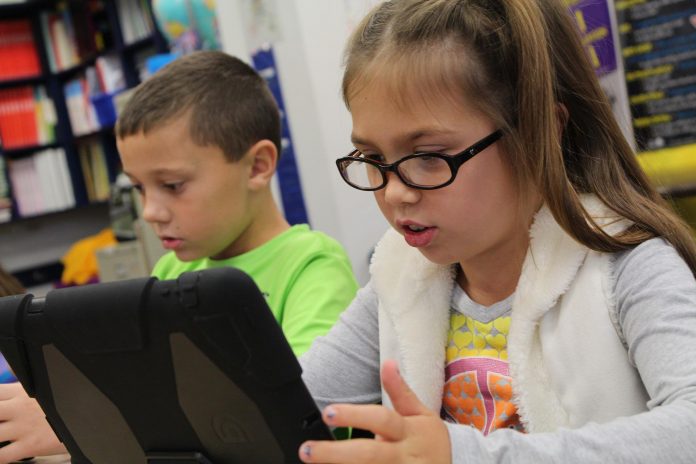Blended learning is better than regular classroom or wholly online learning, especially for English language learners, according to a review by a team from Scotland led by Keith Topping from Dundee University.
The move to online and blended learning during the pandemic increased concern as to the effectiveness of these methods of teaching compared to the usual classroom experience. Post-pandemic, the question is whether these methods are second best or should be embraced for their benefits going forward.
Topping’s review covered 1,355 studies on students from 59 countries from 2020-2021. Topping defines ‘online learning’ as taking place outside of school and ‘blended learning’ as being a combination of remote online/ digital learning and regular classroom learning. Digital learning in school is termed ‘computer-assisted instruction’.
The main findings were:
- Although online learning can be as good as or better than being at school, blended learning has better outcomes than either style alone.
- Online and blended learning was especially beneficial for EFL students, lower ability students and girls generally.
- The use of computerised educational games and computer-supported collaborative learning was more effective than online learning, but less than blended learning.
- Computer-assisted instruction, delivered in school, was even more effective than online or blended learning.
The authors suggest that digital technology enables greater task flexibility and learner autonomy. Since these attributes are generally known to support student well-being, this may help to explain the finding that 79% of studies assessing psychological well-being when using digital learning found an improvement. However, access to digital technology outside of school remains a major issue.
It seems that there is good reason to keep some of the online strategies schools have implemented as emergency measures, but with more support for teacher training and more equitable student access to digital resources.
Many useful recommendations, ideas and tips were extracted from the reviewed papers and the authors have helpfully organised these into their Appendix S2, which can be downloaded from the online version of their open access paper (see the second link in the box ‘Supporting Information’ at the end of the online paper).
REFERENCE
- Topping, K. J., Douglas, W., Robertson, D. and Ferguson, N. (2022) Effectiveness of online and blended learning from schools: A systematic review, Review of Education, 10, e3353. https://doi. org/10.1002/rev3.3353





